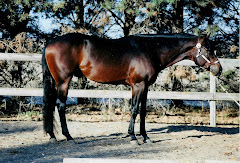From the Farmer's Almanac at
The Truth Behind “In Like a Lion out Like a Lamb”
Is there any truth to this saying??? Weather sayings are as colorful as our imagination. While many sayings are based on careful observations and turn out to be accurate, others are merely rhymes or beliefs of the people who came before us.
Those people often believed that bad spirits could affect the weather adversely, so they were cautious as to what they did or did not do in certain situations. Those beliefs often included ideas that there should be a balance in weather and life. So, if a month came in bad (like a lion), it should go out good and calm (like a lamb).
With March being such a changeable month, in which we can see warm spring-like temperatures or late-season snowstorms, you can understand how this saying might hold true in some instances. We can only hope that if March starts off cold and stormy it will end warm and sunny, but the key word is hope. However, this saying seems be to more of a rhyme rather than a true weather predictor.
Some other March related lore includes:
A dry March and a wet May?Fill barns and bays with corn and hay.
As it rains in March so it rains in June.
March winds and April showers? Bring forth May flowers.
What will the weather be like in March?
MARCH 1 | WEATHER PROVERBS
http://www.naturalistsalmanac.com/0301Lion.html
“In like a lion, out like a lamb.” March brings with it one of our most familiar weather proverbs, but I find myself wondering who made it up, when, where, and whether it’s true.
The weather proverbs we have inherited with our language are true in the sense that they are based on the real observations of real people who worked outdoors and depended on the weather for their livelihoods. But are these persistent old proverbs true for new parts of the world the English language has carried them to — like Vermont, for instance — or are they just easy to repeat and remember?
To test whether the lion/lamb proverb is true for March in Vermont — or wherever else you might live — it might be an interesting experiment in old-fashioned weather observation to pay attention to this particular March.. Start with the first, but include several additional days to give the early part of the month a fair chance to show itself, and notice how lion-like the weather is.
Then, while you’re waiting for the other end of the month to arrive, you can keep yourself attentive to the weather by counting the number of mists because another old weather proverb says, “So many mists in March, so many frosts in May.” During the last week of March start looking for the promised lamb-like weather. If the weather is pleasant, enjoy it, but don’t expect it to last because yet another old weather proverb says, “April borrows three days of March and they are ill.”
Weather proverbs wouldn’t persist if they weren’t based on what generations of observers have repeated as true, but weather is variable, full of surprises, and might even be changing. Maybe the best use of these old proverbs is to make us more attentive to our own immediate weather.
If your observations confirm that this March came in like a lion and went out like a lamb, chalk one up for the proverb. If March did something else, don’t totally reject the proverb because it might turn out to be true next year. Instead, as a final exercise in thinking like our outdoor-living, weather-observing ancestors, try to create a new, equally memorable proverb for the March you have just lived through.







No comments:
Post a Comment